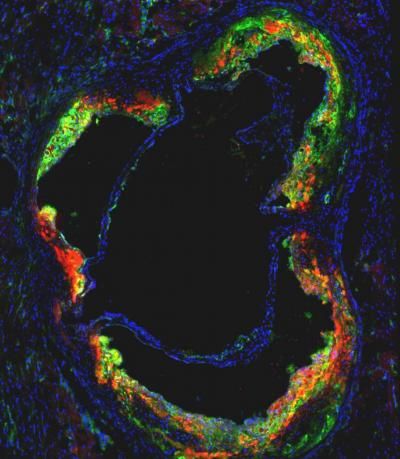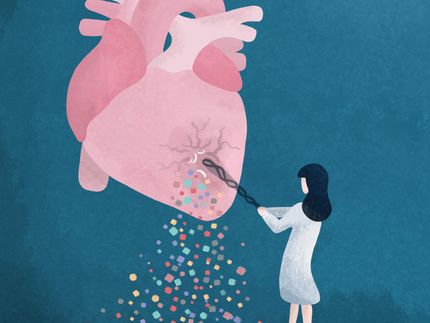Heart disease specialists meet Spanish footballers to develop tools for detecting sudden death syndrome
Applied Biosystems hosts first symposium on sudden death in football players and other European athletes
Leading cardiovascular research scientists and a number of prominent football figures from Spain recently convened at the world's first symposium focused on the molecular analysis of sudden death in football players. The I Symposium de Prevención en el Futbol was held at the Hospital Clínico San Carlos in Madrid, where scientists were brought together to initiate the development of new tests for identifying sports players at risk of sudden death. Applied Biosystems was the sponsor for this event.
Sudden death syndrome is most common in men under the age of 40 and generally causes immediate cardiac arrest during strenuous exercise. Reports of unexpected deaths of young men participating in marathons, cycling races and football matches are not unusual. Sudden death can be caused by a variety of diseases or genetic factors. Genetic causes usually have no symptoms, so professional athletes at risk of the syndrome can appear to be in peak physical condition during routine medical and fitness checks. The cardiovascular disease tests that are currently available are usually insufficient to detect an individual at risk of sudden death, and only a genetic test will provide the required accuracy and reliability.
Developing a new test for predicting sudden death was one of the main objectives of the Madrid symposium, which included a roundtable discussion about methods for identifying specific molecular or genetic changes in people who are at risk. These biomarkers could be used to develop a test panel for screening football players or other sportsmen to identify their risk of sudden death. There are several known genetic causes of sudden adult death, including abnormalities of the heart muscles, and malfunctioning of ion channels. Ion channels are vital cellular structures through which ions, such as calcium, potassium or sodium, pass in or out during the heart's normal functioning. Malfunctions of these channels can result in cardiac arrest. Several ion channel abnormalities have been identified that are known to increase the risk of sudden cardiac arrest, including long QT syndrome and Brugada syndrome.
Most read news
Topics
Organizations
Other news from the department science

Get the life science industry in your inbox
By submitting this form you agree that LUMITOS AG will send you the newsletter(s) selected above by email. Your data will not be passed on to third parties. Your data will be stored and processed in accordance with our data protection regulations. LUMITOS may contact you by email for the purpose of advertising or market and opinion surveys. You can revoke your consent at any time without giving reasons to LUMITOS AG, Ernst-Augustin-Str. 2, 12489 Berlin, Germany or by e-mail at revoke@lumitos.com with effect for the future. In addition, each email contains a link to unsubscribe from the corresponding newsletter.
Most read news
More news from our other portals
Last viewed contents

Novel nanotherapy breakthrough
S*BIO’s JAK2 Inhibitor SB1518 Granted Orphan Drug Designation by European Commission for the Treatment of Myelofibrosis
Penn State to lead new international Center Of Excellence for malaria research
Marinomed’s MAM-06.301 achieves preclinical proof of concept

Antiviral treatment for textiles
MDxHealth Appoints New Scientific Advisory Board
Sigma-Aldrich receives National Institutes of Health funding for cardiovascular disease research - Sigma Life Science to Analyze Plasma Samples from Framingham Heart Study in Researching Novel Biomarkers for Cardiovascular Disease

Green tea catechins promote oxidative stress - Green tea is seen as healthy and promotes a longer life supposedly due to its high level of antioxidants: Researchers have now cast doubt on previous assumptions about how these ingredients work
Category:Parkinson's_disease
The Genetics Company Inc. enters distributorship agreement with Stratech Scientific Ltd.






















































